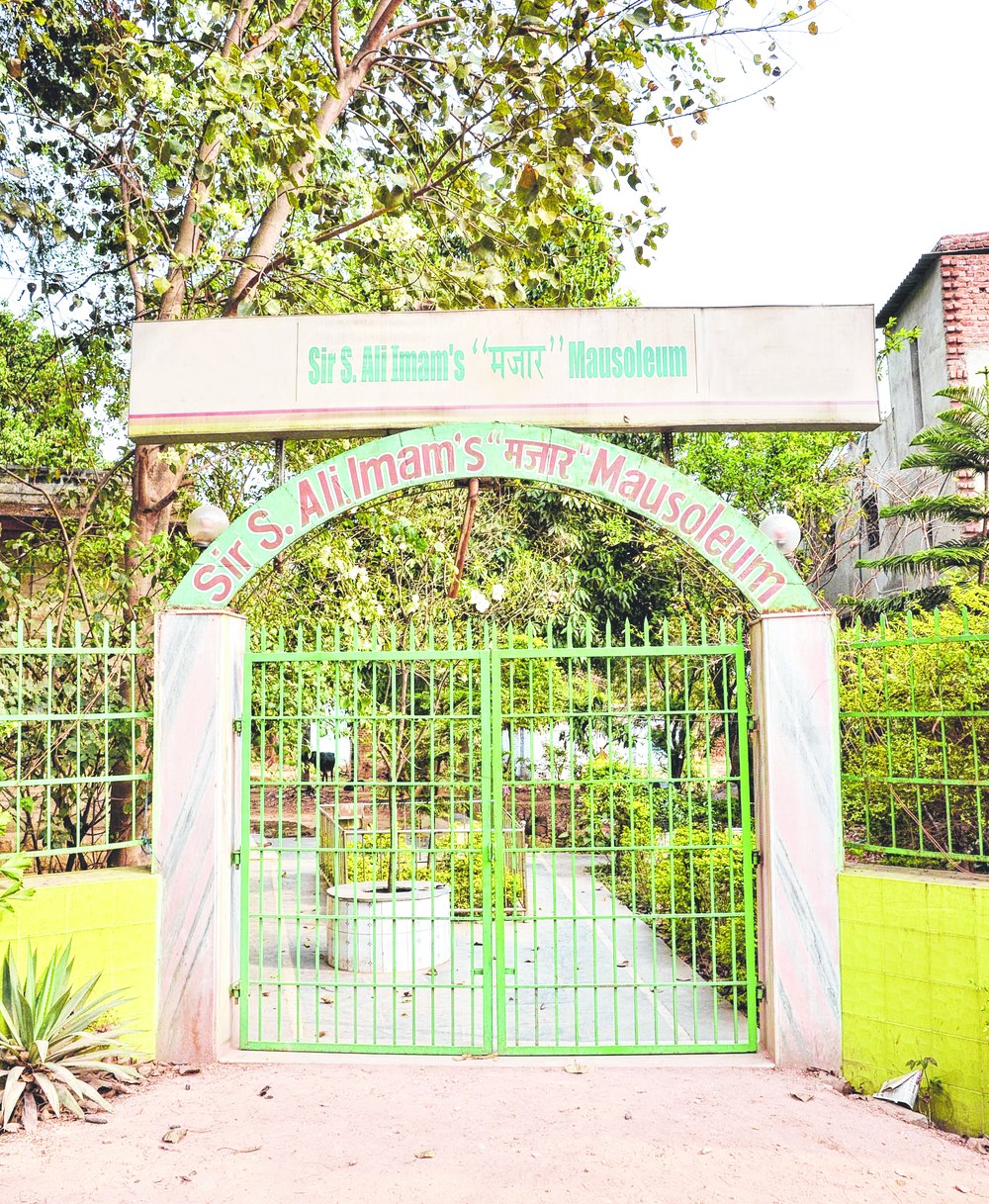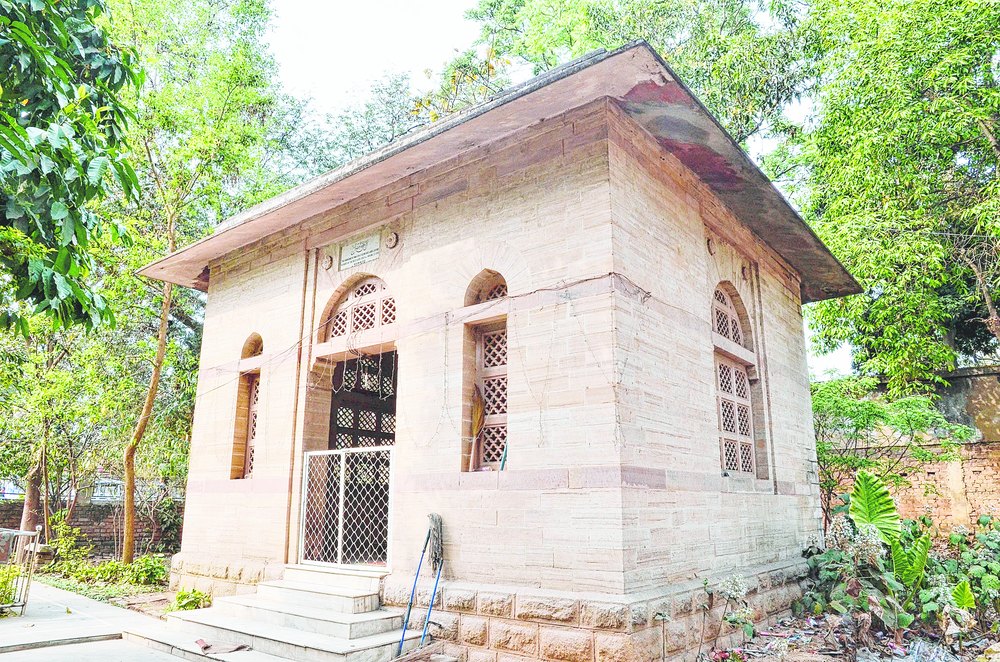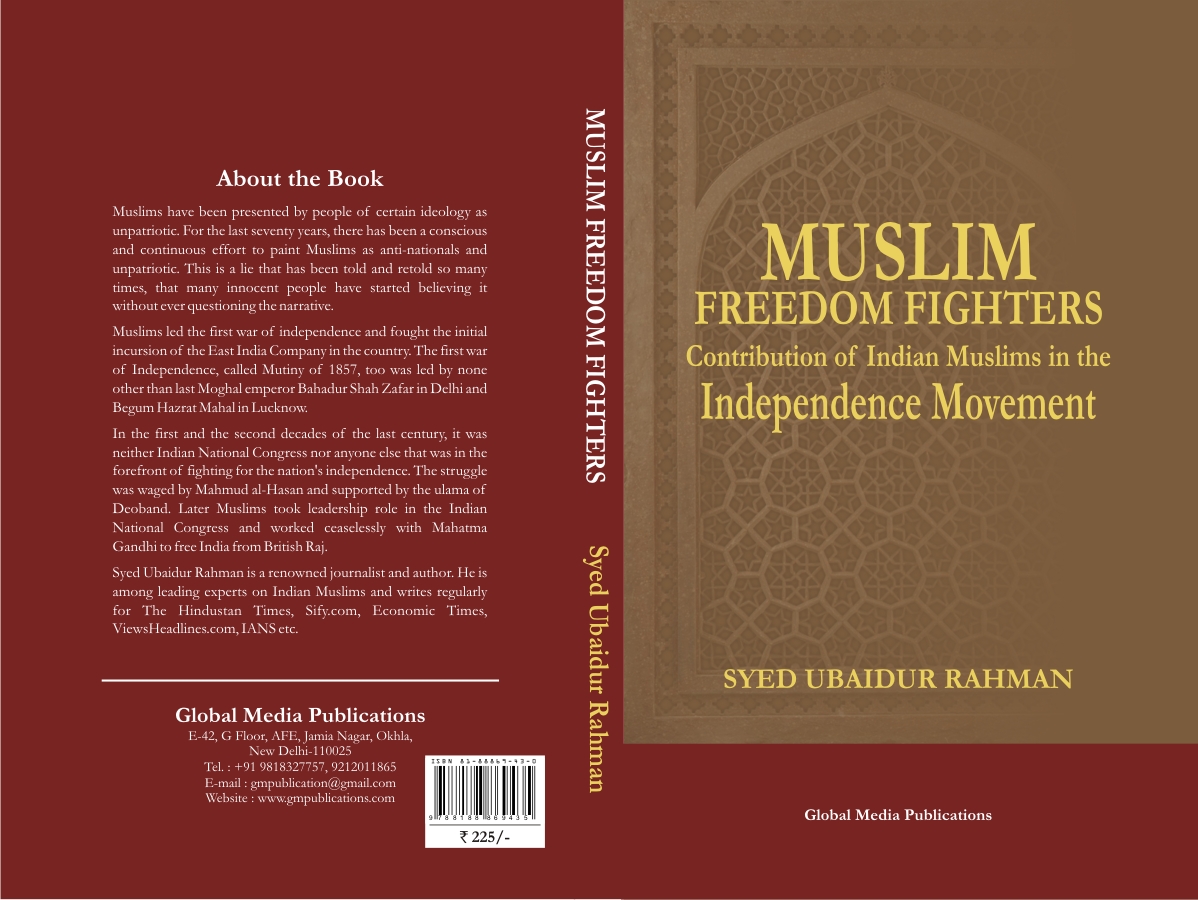Dipatoli (Ranchi), JHARKHAND :

Jharkhand’s “stepmotherly attitude” towards the mausoleum of Sir Ali Imam, one of Bihar’s prime architects, has prompted the knight’s grandson to resurrect his decade-old heritage status demand for the site that rightly deserves conservation.
In 2005, a memorandum had been signed between the Indian National Trust for Art and Cultural Heritage (Intach) and Birla Institute of Technology (BIT), Mesra, to develop the mausoleum on NH-33 near Dipatoli, Ranchi, into an art and culture centre. But, like most other projects in the state, it sank into oblivion.
In 2012-13, the Archaeological Survey of India (ASI) listed some monuments for protection, including the Jami Masjid and Baradwari Masjid in Rajmahal, Khekparta temple in Lohardaga and Buddhist ruins in Benisagar, West Singhbhum, but the mausoleum was again given the pass.
Such “monumental neglect” has now prompted Askari Imam, the grandson of Sir Ali Imam, and other members of the Sir Ali Imam Trust like grandnephew Bullu Imam to request the Raghubar Das government for a heritage tag.
Justin Imam, the great grandson of the knight, said they were pursuing the matter with the department of art and culture (archaeology) so that a pending report advocating conservation rights for the mausoleum was given active consideration. “A year ago, we had submitted the report to the department. It is obvious no one took interest. We will push the matter again tomorrow (Tuesday),” Justin said.
Former state convener of Intach Shree Deo Singh conceded that Askari Imam had approached him with a conservation request five years ago. “The Trust was then formed for its maintenance. However, after my term as convener ended, the tomb was subjected to utter neglect,” Singh said.
Bullu Imam pointed out that the monument existed in a capital city and yet most people of Jharkhand were unaware of it. “This is so unfortunate,” he said.
“Once the mausoleum is declared a protected site, it will attract tourists from the state and outside,” added voluntary caretaker Chetan who also runs a shop nearby.
State art and culture secretary Vandana Dadel said members of Sir Ali Imam Trust had met her last week and she had assured them that she would look into the matter. “I will send a team to the site so that we can initiate talks with the ASI,” she promised.
Ali Imam, a judge at Patna High Court in 1917, was a law member of the British Imperial Council and was conferred knighthood by the British government. Sir Ali Imam, who played an important part in the constitution of Bihar, died in 1932 after which the mausoleum was built.
_____________________________________________
Correction:
I would like you to make amendment in one of the paragraph. Where you mentioned that Justin Imam the great grandson to Sir Syed Ali Imam. In fact Justin Imam is the great grandson to Sir Hasan Imam who was the younger brother to Sir Syed Ali Imam Saheb.
Sir Ali Imam Saheb great grandchildren are from Late Justice Jafer Imam, Reza Imam and Naqi. Kindly amend the paragraph in your article.
Many thanks
Amina Imam Ahmad / 05th April 2018
__________________________________________
source: http://www.telegraphindia.com / The Telegraph, Calcutta,India / Front Page> Jharkhand> Story / by Arti S. Sahuliyar / March 10th, 2015










